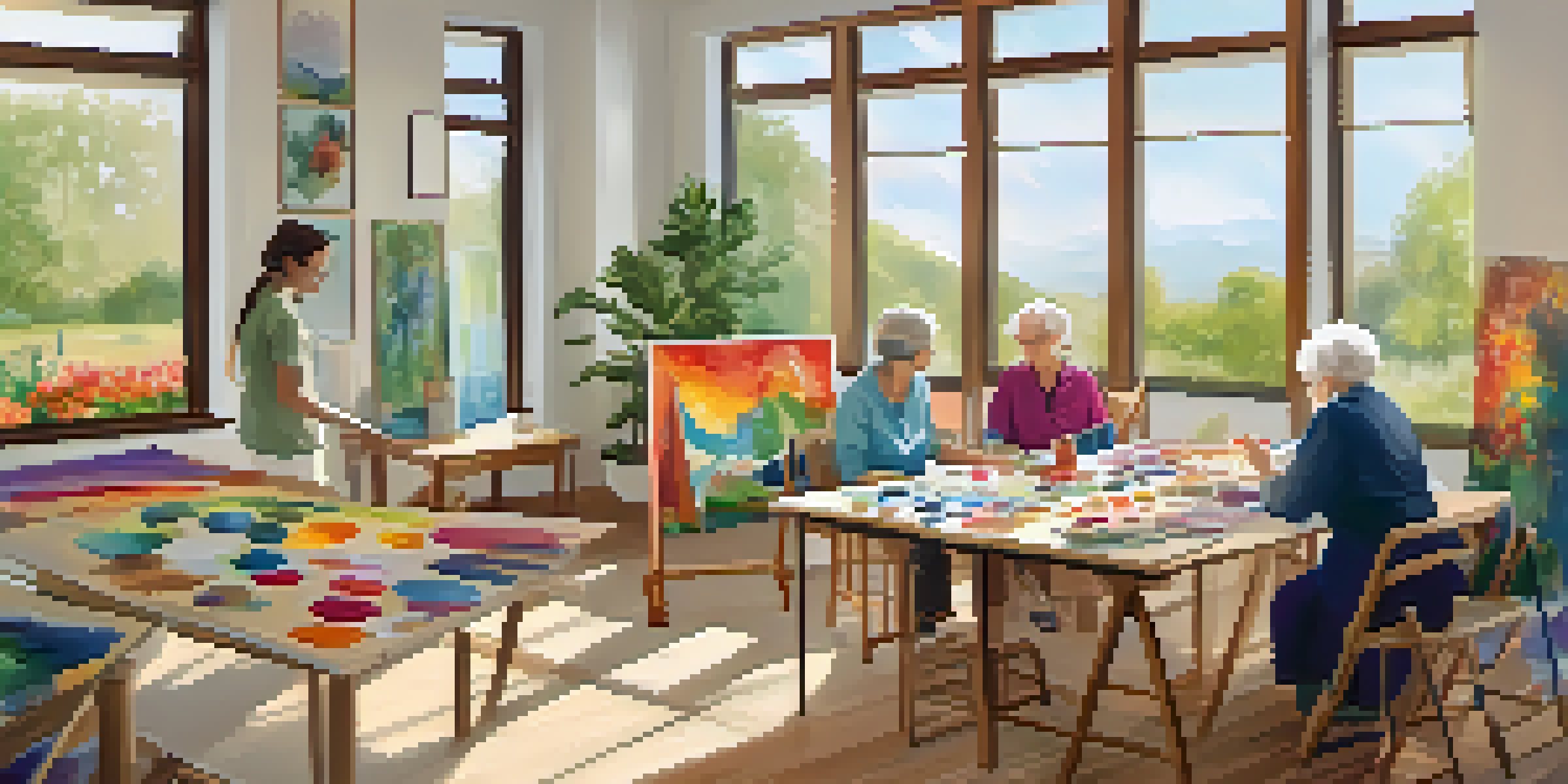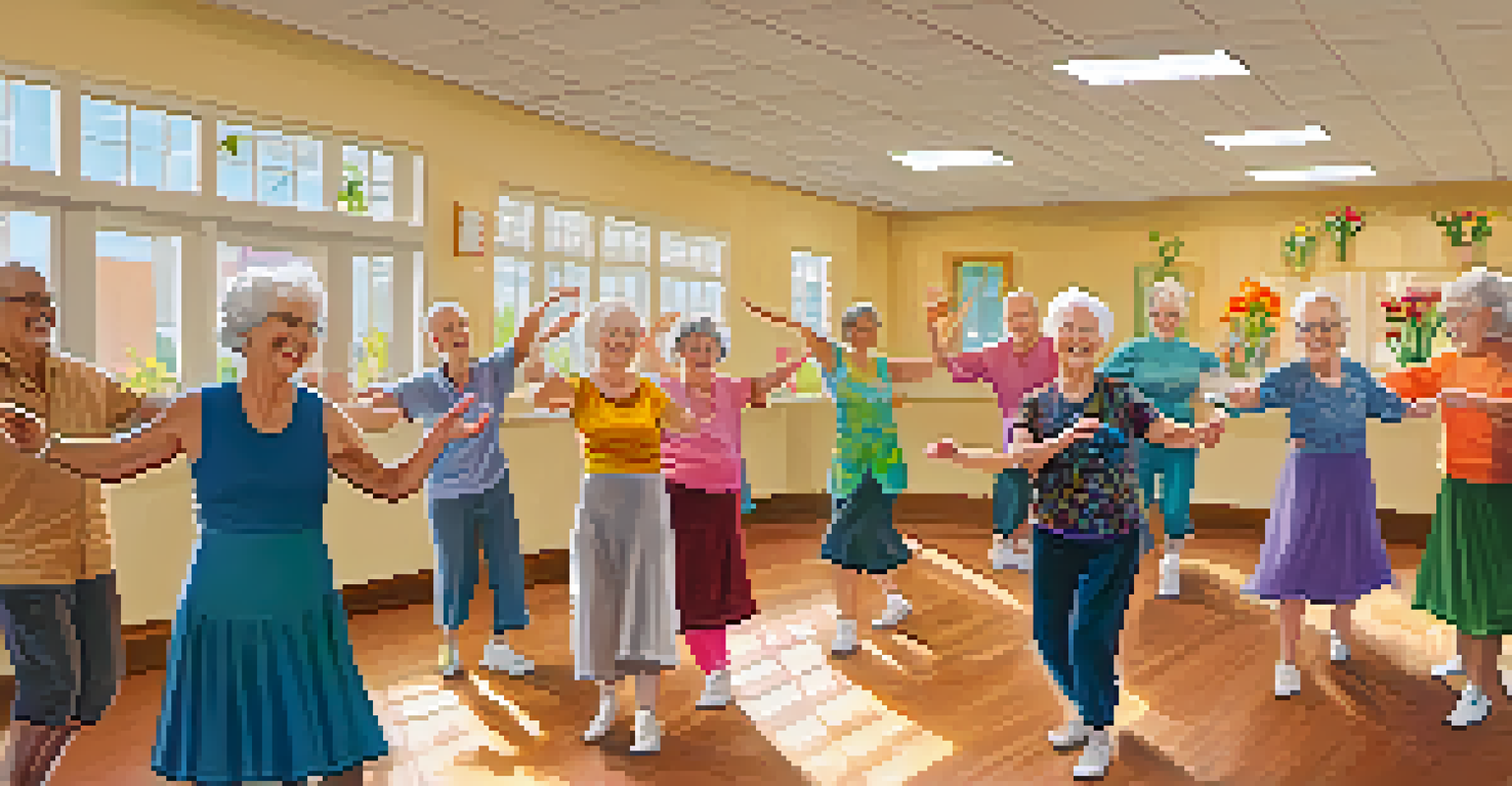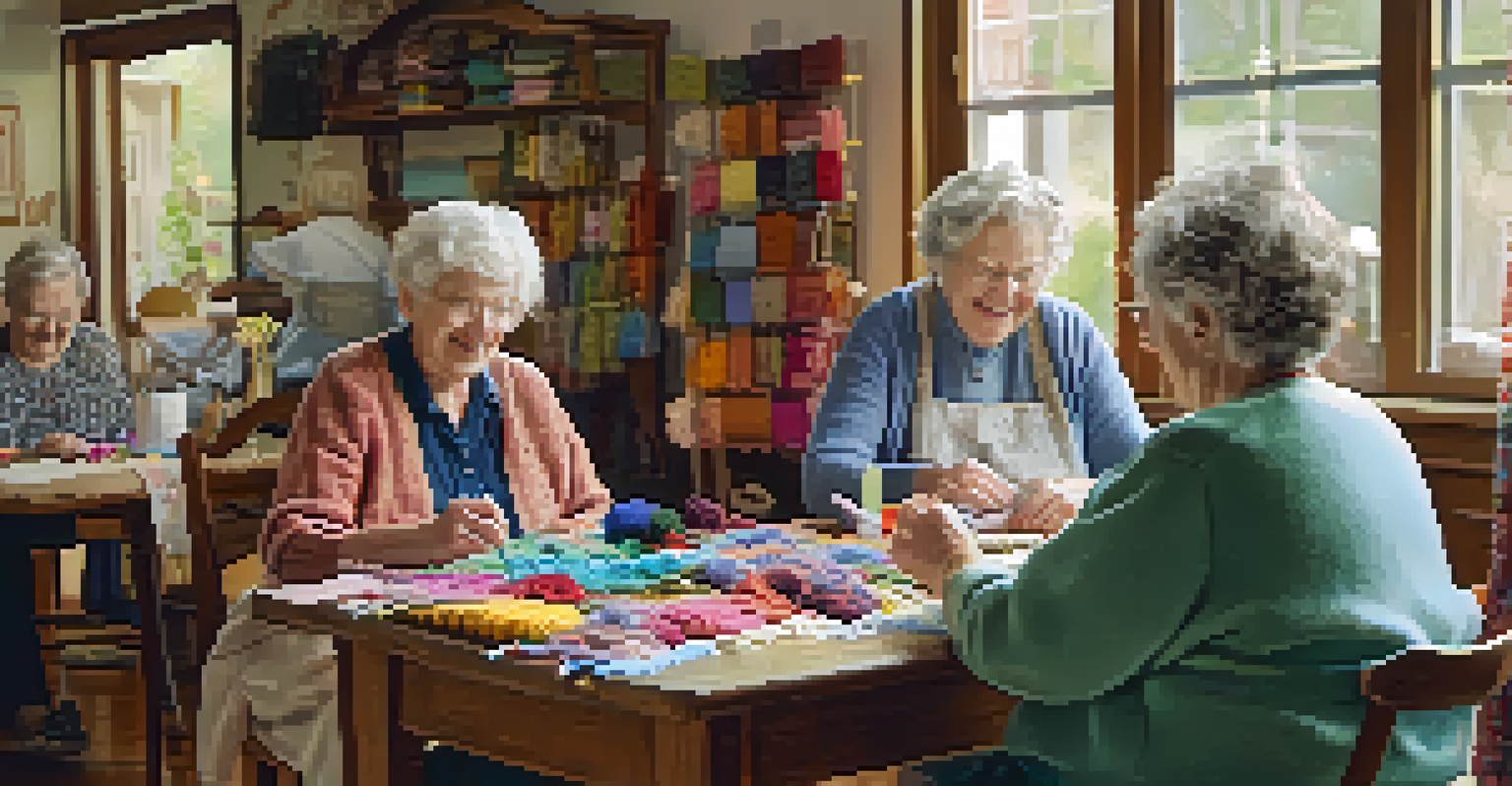Artistic Activities and Cognitive Health in Older Adults

Understanding Cognitive Health in Older Adults
Cognitive health refers to the ability to think, learn, and remember. As we age, maintaining this mental agility becomes crucial for overall well-being. Factors such as social engagement, physical health, and mental challenges play significant roles in cognitive health.
Art is the most beautiful of all lies.
Older adults often face cognitive decline due to various reasons, including neurodegenerative diseases and diminished social interaction. This decline can lead to conditions like dementia, making it essential to find ways to keep the mind active and engaged. Understanding these challenges sets the stage for exploring effective interventions.
One effective intervention that has gained attention is the incorporation of artistic activities into daily routines. These creative endeavors not only provide enjoyment but also stimulate brain functions, offering a dual benefit of pleasure and cognitive enhancement.
The Role of Artistic Activities in Cognitive Engagement
Artistic activities encompass a wide range of creative practices, from painting and drawing to music and dance. Engaging in these activities can stimulate various areas of the brain, promoting neural connections that might otherwise weaken with age. This stimulation is similar to a workout for the brain, keeping it fit and agile.

Moreover, artistic activities often require problem-solving and critical thinking skills, which further challenge the mind. For instance, a painter must decide on colors, shapes, and compositions, all of which engage cognitive functions. This level of engagement is vital for maintaining mental acuity.
Art Boosts Cognitive Health
Engaging in artistic activities stimulates brain functions and enhances cognitive abilities in older adults.
Additionally, the joy and satisfaction derived from creating art can boost mood and reduce feelings of isolation. When older adults participate in group art classes, they not only express themselves creatively but also cultivate social connections that are essential for emotional well-being.
Benefits of Music and Dance for Cognitive Health
Music and dance are powerful forms of artistic expression that have shown significant benefits for cognitive health in older adults. Engaging in music, whether through listening or playing an instrument, activates multiple brain regions associated with memory and emotion. This multifaceted stimulation can enhance cognitive functions and even improve memory recall.
The more I read, the more I acquire, the more certain I am that I know nothing.
Dance, on the other hand, combines physical activity with rhythm and coordination, offering a unique way to engage both the body and mind. Studies have shown that regular dance practice can improve balance, coordination, and cognitive flexibility, all of which are essential for healthy aging.
Moreover, participating in music and dance fosters a sense of community and belonging. Whether it's a group sing-along or a dance class, these activities create opportunities for social interaction, which is another vital component of cognitive health.
Art Therapy as a Cognitive Enhancement Tool
Art therapy is a structured approach that uses artistic activities as a therapeutic tool to improve cognitive health. This form of therapy is particularly beneficial for older adults facing cognitive challenges, as it encourages self-expression and emotional exploration. By facilitating communication through art, therapists can help individuals articulate feelings that may be difficult to express verbally.
Research has shown that art therapy can lead to improvements in memory, attention, and problem-solving skills. For instance, creating a collage or painting can spark memories and stimulate discussions about past experiences, enhancing cognitive engagement.
Music and Dance Enhance Well-being
Participating in music and dance promotes cognitive flexibility and fosters social connections, crucial for healthy aging.
Additionally, art therapy sessions often create a safe and supportive environment where older adults can connect with others. This sense of community can alleviate feelings of loneliness, which is crucial for maintaining cognitive health.
The Impact of Creative Writing on Mental Wellness
Creative writing, including poetry and storytelling, is another impactful artistic activity for older adults. Writing encourages cognitive engagement by prompting individuals to think critically and reflect on their experiences. This process can sharpen memory and enhance language skills, which are vital aspects of cognitive health.
Moreover, creative writing allows for emotional expression and processing. Writing about personal experiences can be therapeutic, helping individuals make sense of their lives and emotions. This reflective practice is particularly beneficial for those who may struggle with feelings of loss or change during aging.
Group writing workshops also foster social connections, further enhancing the cognitive and emotional benefits of this activity. Sharing stories and engaging in discussions can create a sense of belonging, vital for mental wellness in older adults.
Crafting and Its Cognitive Benefits
Crafting activities, such as knitting, woodworking, or scrapbooking, are excellent ways for older adults to engage their minds while creating tangible products. These activities require focus, precision, and creativity, all of which work to stimulate cognitive functions. The process of learning new crafting skills can also promote neuroplasticity, the brain's ability to adapt and grow.
Additionally, crafting can be a meditative practice, providing mental relaxation and stress relief. The repetitive motions involved in many crafts can be soothing, helping to reduce anxiety and promote a sense of calm. This mental relaxation is crucial for maintaining cognitive health.
Creative Writing Supports Reflection
Creative writing encourages emotional expression and cognitive engagement, helping older adults process their experiences.
Furthermore, crafting often involves planning and executing projects, which encourages problem-solving and critical thinking. Whether it’s following a pattern or designing a new creation, these mental challenges contribute to cognitive resilience in older adults.
Encouraging Participation in Artistic Activities
Encouraging older adults to participate in artistic activities can be a rewarding endeavor. Family members and caregivers can play a crucial role by introducing various creative options that align with an individual's interests. Whether it's setting up a painting session or a music night, creating opportunities for engagement is key.
Community centers and local organizations often offer classes and workshops tailored for seniors. These programs not only provide instruction but also foster social interactions, making it easier for older adults to connect with peers who share similar interests.

Lastly, it’s essential to create a supportive environment where older adults feel comfortable exploring their creativity. Celebrating their artistic efforts, regardless of skill level, can boost confidence and encourage continued participation, ultimately benefiting their cognitive health.